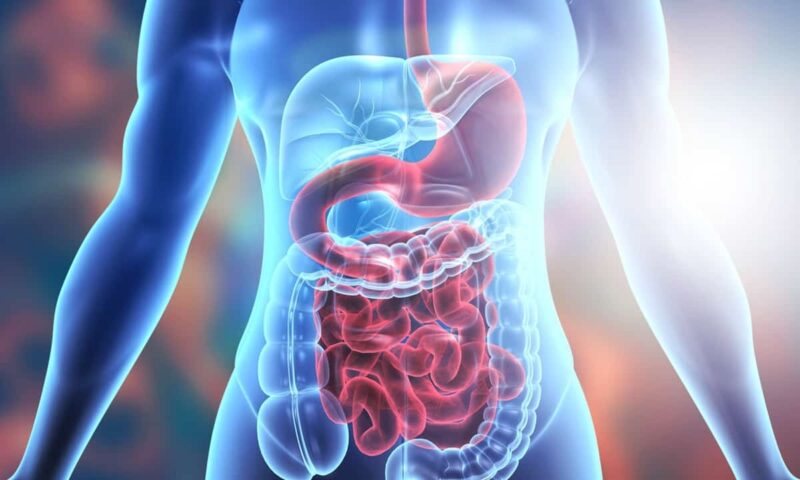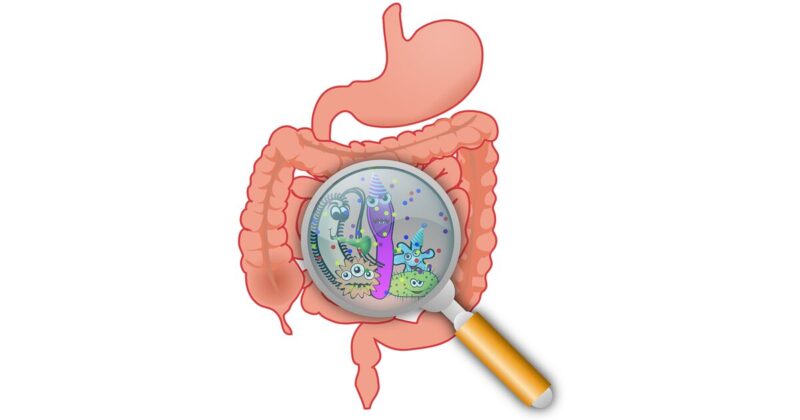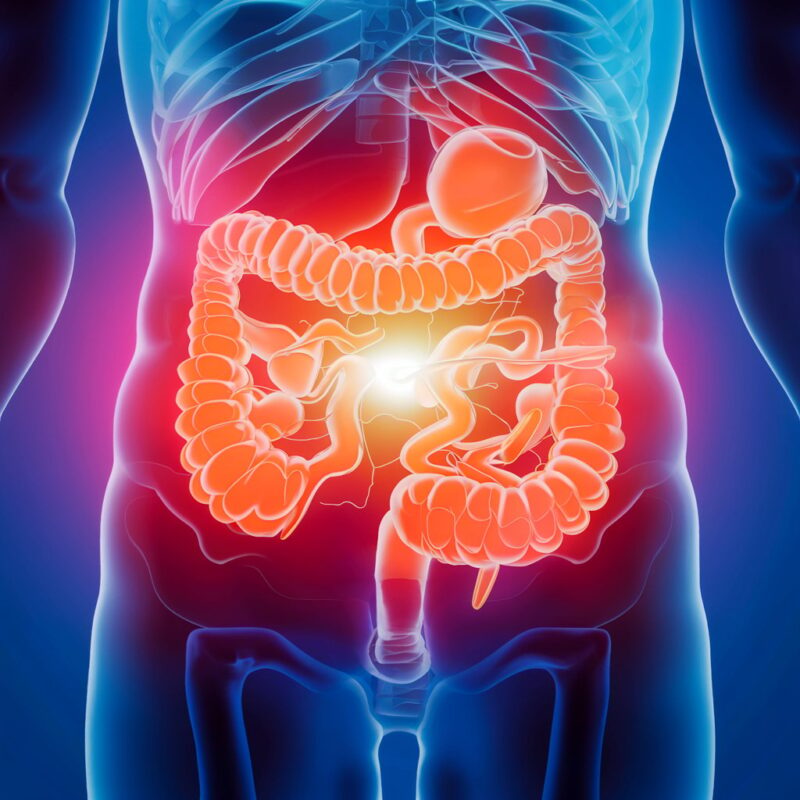Amino acid chains, more known as bioregulators, play an important role in controlling a variety of physiological processes in the body, including digestion and gut health. The gut, being the body’s “second brain,” is a complex ecosystem comprising a wide variety of microbes and cells that work together to promote general health.
A bioregulator, being a chain of tissue-specific amino acids, can positively affect gut health on cellular level.
The Impact of Bioregulators on Digestion

Due to their assistance with the wholesome absorption of nutrients, digestion of foods, and gut integrity maintenance, bioregulators significantly influence gastric motility. These molecules facilitate the coordination of enzyme reactions, guaranteeing efficient food breakdown into essential nutrients the body can take.
Enhancing Nutrient Absorption with Bioregulators
One of the essential roles of bioregulators in preserving gut health is improving nutrient absorption. These molecules facilitate the passage of nutrients from the stomach lining into the bloodstream, ensuring that the body can effectively utilize the nutrients consumed through diet.
By enhancing nutrient absorption, they contribute significantly to the overall availability of essential nutrients, which are required for a wide range of biological functions.
Mechanisms of Action
The process of nutrient absorption primarily occurs in the small intestine, where the lining is composed of villi and microvilli that increase the surface area for absorption. Bioregulators enhance this process by optimizing the function and health of these structures.
They help maintain the integrity of the lining, preventing conditions such as leaky syndrome, where the barrier function of the intestine is compromised, leading to poor nutrient absorption and the entry of harmful substances into the bloodstream.
Boosting Digestive Enzymes
One way bioregulators enhance nutrient absorption is by boosting the production and activity of digestive enzymes.
These enzymes are crucial for breaking down food into its constituent nutrients, such as amino acids, fatty acids, vitamins, and minerals, which can then be absorbed into the bloodstream.
Enhanced enzyme activity ensures that nutrients are more efficiently extracted from food, reducing the risk of deficiencies and promoting overall health.
Gut Microbiota Modulation

A healthy gut microbiota is essential for optimal nutrient absorption. The flora plays a critical role in breaking down complex carbohydrates, synthesizing certain vitamins, and aiding in the absorption of minerals.
Bioregulators support a balanced microbiome, which in turn enhances nutrient absorption. By promoting the growth of beneficial bacteria and inhibiting harmful bacteria, they create an optimal environment for nutrient uptake.
Enhancing Transport Mechanisms
Nutrient absorption involves active and passive transport mechanisms across the gut lining. They enhance these transport processes by modulating the expression and activity of specific transport proteins.
These proteins facilitate the movement of nutrients from the digestive tract into the cells of the gut lining and subsequently into the bloodstream. Improved transport efficiency ensures that a higher proportion of ingested nutrients are absorbed and utilized by the body.
Bioregulators and Gut Health: Clinical Studies and Evidence

Numerous clinical investigations have looked into the connection between gut health and bioregulators. According to research, bioregulators help to maintain a healthy gut flora, promote a normal inflammatory response, and encourage proper digestion.
Although further studies are required to completely understand the mechanisms, growing data points to a beneficial relationship between consuming bioregulators and enhanced health.
Clinical Studies on Bioregulators and Gut Flora
Gut flora, or the gut microbiome, is a complex community of microorganisms living in the digestive tract. Maintaining a healthy gut flora is crucial for digestion, immune function, and overall health.
Clinical studies have shown that bioregulators can play a significant role in supporting gut health by influencing the composition and activity of gut microbiota. For instance, some have been found to increase the abundance of beneficial bacteria while reducing harmful bacteria.
This balance is essential for preventing dysbiosis, a condition linked to various gastrointestinal disorders such as irritable bowel syndrome (IBS) and inflammatory bowel disease (IBD).
Bioregulators and Inflammatory Response

Chronic inflammation in the gut can lead to a range of health issues, including autoimmune diseases and metabolic disorders. Research indicates that some can help modulate the body’s inflammatory response.
By interacting with immune cells and signaling pathways, bioregulators can reduce inflammation and promote healing in the gut lining. For example, specific peptides and others have demonstrated anti-inflammatory properties in clinical trials, showing promise in managing conditions like Crohn’s disease and ulcerative colitis.
Promotion of Proper Digestion
Proper digestion is fundamental to nutrient absorption and overall health. Bioregulators contribute to this process by enhancing the function of digestive enzymes and improving the integrity of the gut lining.
Studies have highlighted how bioregulators can support the secretion of digestive enzymes, aiding in the efficient breakdown and absorption of nutrients.
Additionally, by strengthening the gut barrier, bioregulators help prevent conditions such as leaky gut syndrome, where harmful substances leak into the bloodstream, causing widespread inflammation and other health issues.
Mechanisms of Action
While the exact mechanisms by which bioregulators affect health are still being investigated, several hypotheses have been proposed. One theory suggests that bioregulators interact with gut epithelial cells, enhancing their function and resilience.
Another hypothesis is that bioregulators modulate the gut-brain axis, influencing neurological and hormonal pathways that regulate digestion and immune responses. Emerging research also points to the role of bioregulators in epigenetic modifications, which can alter gene expression related to health and disease resistance.
Adding Bioregulators into a Healthy Diet and Lifestyle

Incorporating bioregulators into one’s diet and lifestyle can contribute to better gut health. Foods rich in prebiotics and probiotics can naturally support the growth and activity of beneficial gut microorganisms:
- yogurt;
- garlic;
- bananas;
- onions.
Additionally, consuming diverse plant-based foods provides the body with the necessary nutrients to support bioregulator functions.
As you can see, bioregulators are extremely important for preserving gut health and general well-being. They are important for fostering healthy body processes because of how they affect digestion, nutrient absorption, and gut flora. You can learn even more about bioregulators and their benefits at their best source ‒ the Club120 store.
People can choose wisely to include these molecules in their food and lifestyle as new information about the complex processes of bioregulators becomes available, helping to promote a healthy and thriving gut ecology.








